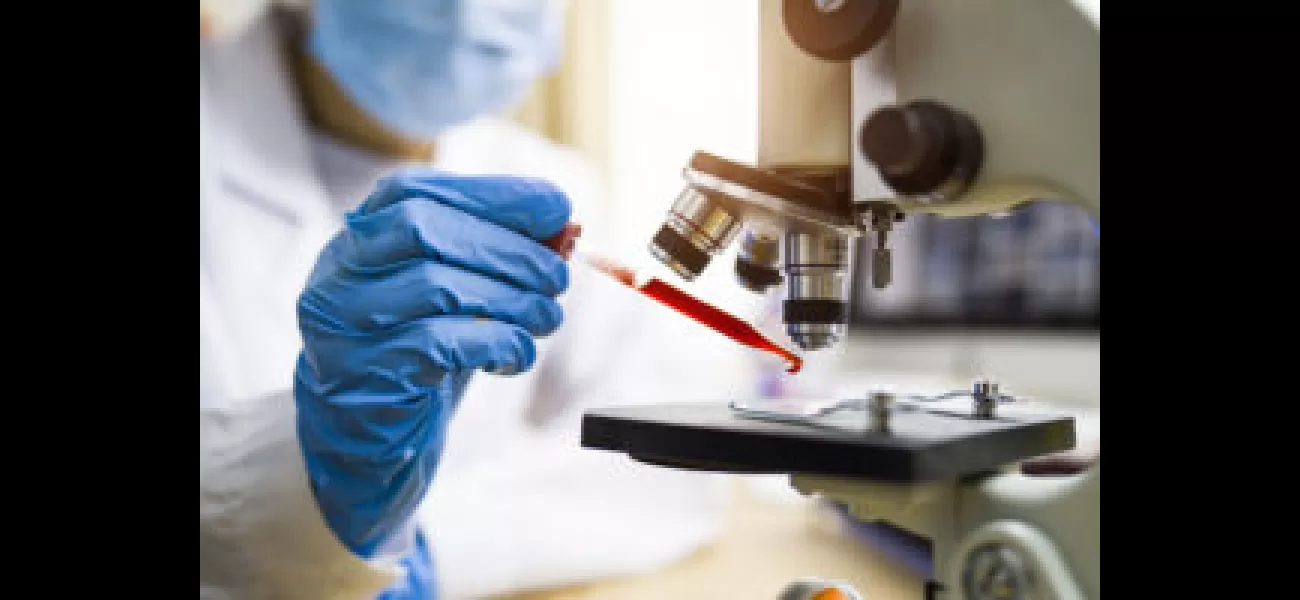Researchers at Houston Medical Center are making strides towards a potential breakthrough in cancer treatments.
Houston is becoming a leader in cancer research, thanks to its vast network of medical facilities, known as the Medical Center.
November 25th 2023.

For the better part of a century, medical professionals have been working towards creating attainable cancer vaccines. According to the Houston Chronicle, a breakthrough appears to be on the cusp.
Dr. William Decker, a lead at a Baylor College of Medicine lab that is currently in multiple trials for cancer vaccines, is hopeful for the future. He explained to the Chronicle, “I’d say that if I’ve done my job, and others like me have done their jobs, 25 years from now, everybody’s getting a vaccine.”
The current vaccines being developed are not cancer vaccines; however, they are cancer-related. The Chronicle reported that they are designed to shrink tumors and to keep cancer from coming back. Cancer cells present a different challenge to being vaccinated, as they work differently from an illness like the flu. Dr. Hussein A. Tawbi, deputy chair of the Department of Melanoma Medical Oncology at the University of Texas MD Anderson Cancer Center in Houston, told the Chronicle that cancer cells put out receptors that inhibit the immune system from doing its job. He explained, “In a decent proportion of patients, there is always kind of a ‘tug of war’ between the immune system and the tumor. The tumor basically puts up a stop sign.”
Thanks to the development of immune checkpoint inhibitors through immunotherapy, as well as mRNA technology and bioinformatics, which have allowed scientists to map the genetic sequence of tumors, there is hope in the scientific community that a vaccine could be around the corner. Houston is particularly well-placed for this type of medical research due to its network of hospitals, colloquially known as the Medical Center.
Decker compared the Medical Center to being an actor on Broadway, saying, “If you’re a biomedical scientist or physician, being in the Texas Medical Center is like being an actor in New York City and playing on Broadway. You’d rather be second-from-the-left on Broadway than playing the lead in Kalamazoo.”
MD Anderson Cancer Center is one of the sites for a Phase 3 trial for an mRNA vaccine being co-developed by Moderna and Merck. The vaccine showed promising results during Phase 2 of its development, where along with an immunotherapy called Ketruda, the vaccine reduced the risk of re-occurrence or death by 44%, and the chance of the cancer spreading to another part of the body by 65%.
Even with the promising results, Dr. Tawbi noted that more work will have to be done before a vaccine for any cancer is ready. He explained, “It is a new approach, and so I think expectations of everything being highly successful on the first run is not necessarily realistic. We may encounter different roadblocks.”
But there is still hope that one day a vaccine for cancer will become a reality for patients. Todd Pieper, a 56-year-old from Seattle participating in a clinical trial, described his choice to NBC Bay Area, saying, “I have nothing to lose and everything to gain, either for me or for other people down the road.”
The research being done in Houston gives us hope for the future of cancer treatments. Although more work is needed, the developments that have been made give us reason to believe that someday soon, cancer vaccines will be attainable.
Dr. William Decker, a lead at a Baylor College of Medicine lab that is currently in multiple trials for cancer vaccines, is hopeful for the future. He explained to the Chronicle, “I’d say that if I’ve done my job, and others like me have done their jobs, 25 years from now, everybody’s getting a vaccine.”
The current vaccines being developed are not cancer vaccines; however, they are cancer-related. The Chronicle reported that they are designed to shrink tumors and to keep cancer from coming back. Cancer cells present a different challenge to being vaccinated, as they work differently from an illness like the flu. Dr. Hussein A. Tawbi, deputy chair of the Department of Melanoma Medical Oncology at the University of Texas MD Anderson Cancer Center in Houston, told the Chronicle that cancer cells put out receptors that inhibit the immune system from doing its job. He explained, “In a decent proportion of patients, there is always kind of a ‘tug of war’ between the immune system and the tumor. The tumor basically puts up a stop sign.”
Thanks to the development of immune checkpoint inhibitors through immunotherapy, as well as mRNA technology and bioinformatics, which have allowed scientists to map the genetic sequence of tumors, there is hope in the scientific community that a vaccine could be around the corner. Houston is particularly well-placed for this type of medical research due to its network of hospitals, colloquially known as the Medical Center.
Decker compared the Medical Center to being an actor on Broadway, saying, “If you’re a biomedical scientist or physician, being in the Texas Medical Center is like being an actor in New York City and playing on Broadway. You’d rather be second-from-the-left on Broadway than playing the lead in Kalamazoo.”
MD Anderson Cancer Center is one of the sites for a Phase 3 trial for an mRNA vaccine being co-developed by Moderna and Merck. The vaccine showed promising results during Phase 2 of its development, where along with an immunotherapy called Ketruda, the vaccine reduced the risk of re-occurrence or death by 44%, and the chance of the cancer spreading to another part of the body by 65%.
Even with the promising results, Dr. Tawbi noted that more work will have to be done before a vaccine for any cancer is ready. He explained, “It is a new approach, and so I think expectations of everything being highly successful on the first run is not necessarily realistic. We may encounter different roadblocks.”
But there is still hope that one day a vaccine for cancer will become a reality for patients. Todd Pieper, a 56-year-old from Seattle participating in a clinical trial, described his choice to NBC Bay Area, saying, “I have nothing to lose and everything to gain, either for me or for other people down the road.”
The research being done in Houston gives us hope for the future of cancer treatments. Although more work is needed, the developments that have been made give us reason to believe that someday soon, cancer vaccines will be attainable.
[This article has been trending online recently and has been generated with AI. Your feed is customized.]
[Generative AI is experimental.]
0
0
Submit Comment





